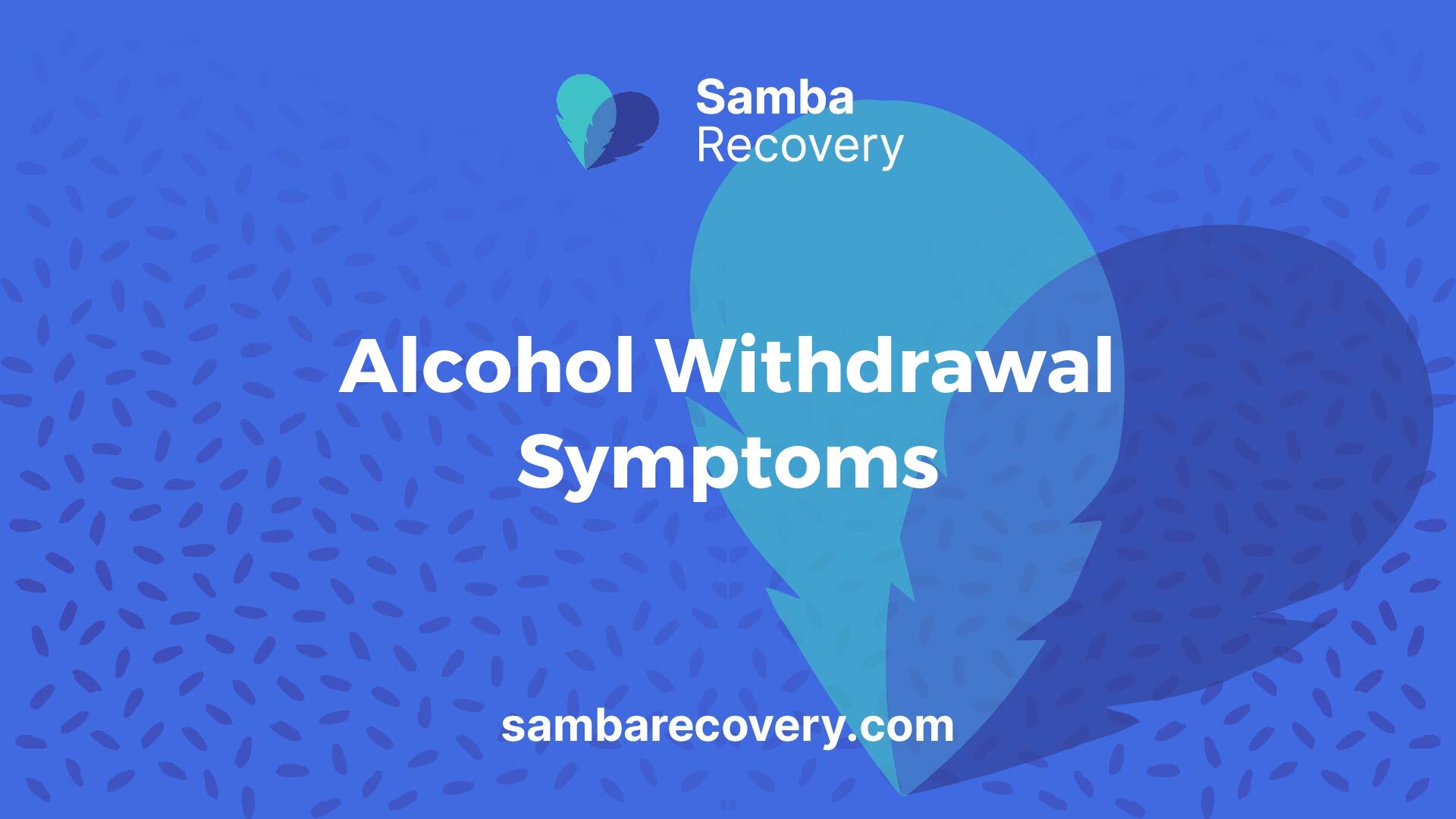
Alcohol Withdrawal Symptoms
Understanding the symptoms of alcohol withdrawal is essential for those seeking to quit drinking. The onset of these symptoms can be quite variable, depending on several factors, including the amount of alcohol consumed and the duration of the individual’s drinking history.
Onset of Symptoms
Alcohol withdrawal symptoms can begin as early as six hours after the last drink. For most individuals, these symptoms may start mildly and can develop into more severe manifestations within a few days. The symptoms of withdrawal can include anxiety, tremors, sweating, nausea, and in more extreme cases, hallucinations. Significant issues like delirium tremens may occur between 48 to 72 hours after stopping alcohol consumption, affecting around 5% of people experiencing withdrawal [1].
Time Since Last DrinkPossible Symptoms6 hoursAnxiety, insomnia, mild tremors12-48 hoursHallucinations, increased heart rate, sweating48-72 hoursDelirium tremens, severe confusion, seizures
Severity of Symptoms
The severity of alcohol withdrawal symptoms can range from mild to life-threatening. While many individuals experience manageable symptoms, others may encounter serious complications that require immediate medical attention. Moderate to severe withdrawal can be extremely dangerous; the mortality rate of delirium tremens ranges from 1% to 4% if left unmanaged [2]. Recognizing the potential for severe symptoms is critical for anyone navigating the challenges associated with alcohol cessation.
Symptoms can escalate rapidly, and those who suspect they may be going through withdrawal should seek professional support, as medical treatment may be necessary to ensure safety. For more information on managing withdrawal symptoms, consider exploring options like alcohol treatment near Wilkes-Barre, PA for your addiction or examining the 5 important facts you should know about an alcohol rehab center.
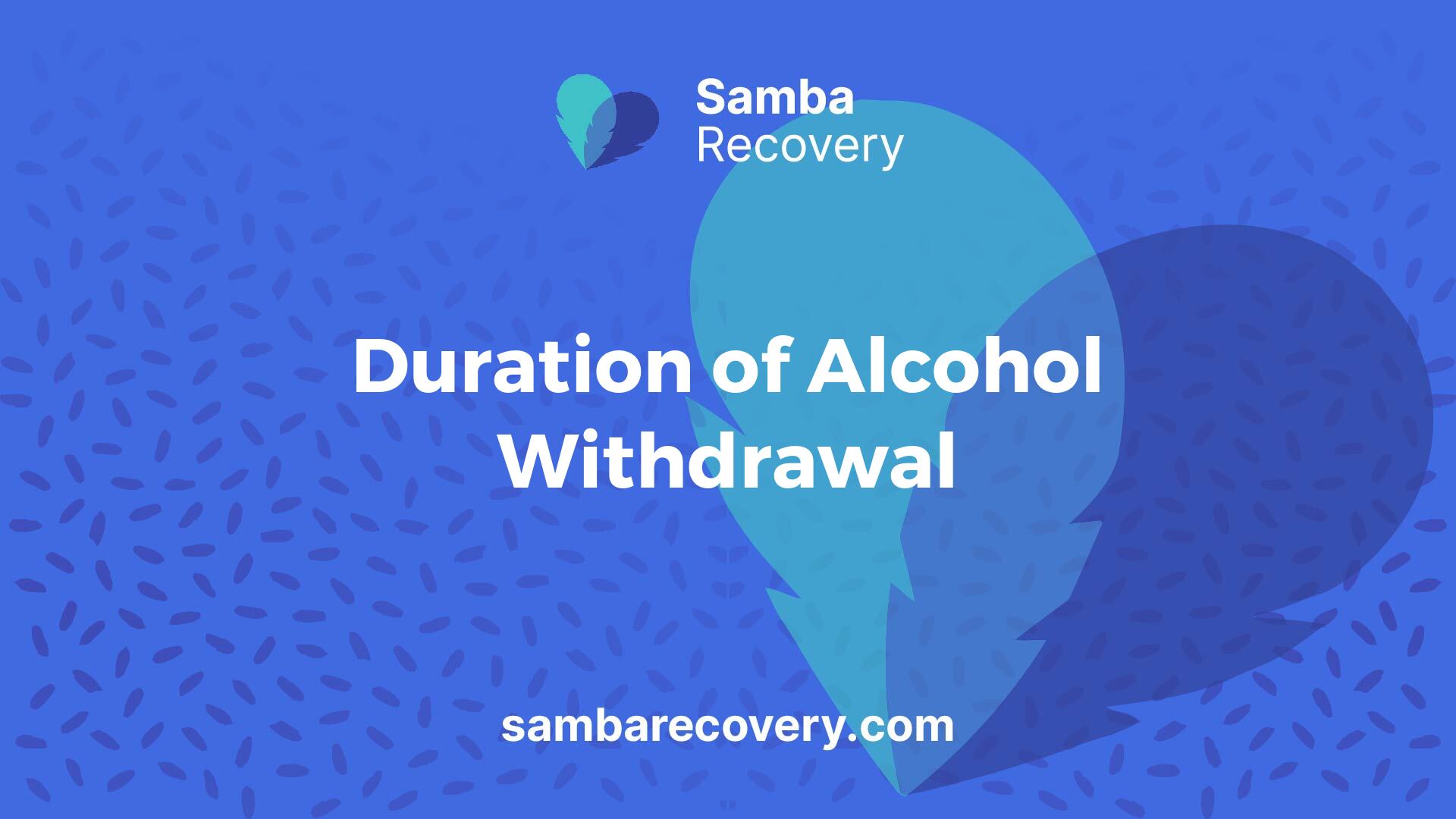
Duration of Alcohol Withdrawal
Understanding the duration of alcohol withdrawal is crucial for those seeking recovery and is a common inquiry about “how long does depression last after quitting alcohol?”. The timeline can vary significantly among individuals based on several factors.
General Timeline
Typically, alcohol withdrawal symptoms appear within 12 to 24 hours after the last drink. These symptoms can be categorized into physical and psychological aspects. The physical symptoms usually improve within 3 to 5 days, while psychological symptoms, including anxiety and depression, can persist for weeks or even months.
SymptomsOnset TimeDurationPhysical12-24 hours3-5 daysPsychological6 hoursWeeks to months
The acute withdrawal period tends to peak within the first week. Following this, individuals may experience Post-Acute Withdrawal Syndrome (PAWS), which can lead to recurrent depressive symptoms up to two years post-quitting [1].
Factors Influencing Duration
The duration of withdrawal symptoms can vary greatly based on several influencing factors:
Ultimately, recognizing these factors can help individuals prepare for the challenges of alcohol withdrawal and guide them in developing effective coping strategies during their recovery journey.
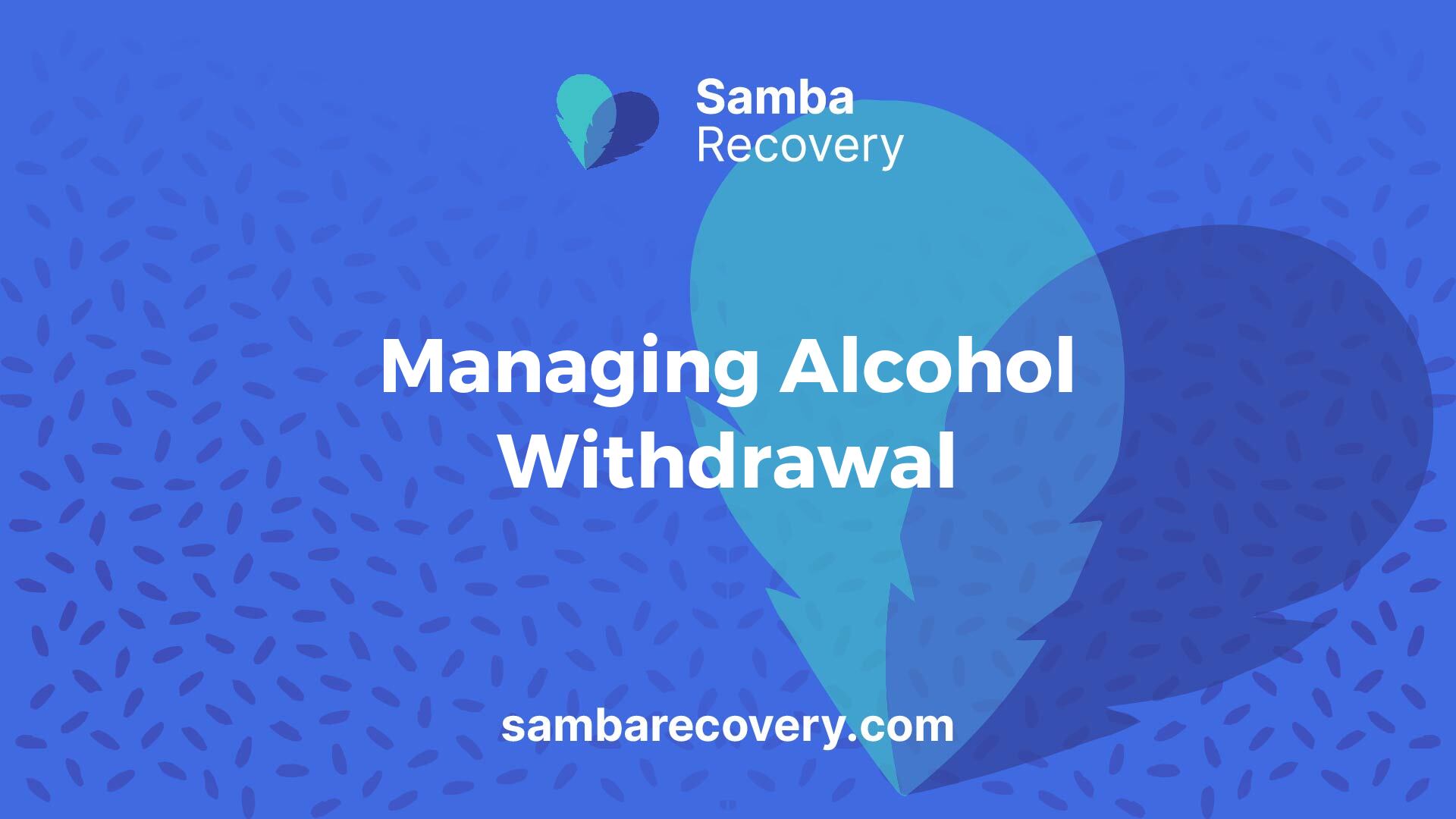
Managing Alcohol Withdrawal
Managing alcohol withdrawal effectively is crucial for individuals seeking to overcome alcohol use disorder. Medical interventions and support systems play a significant role in easing withdrawal symptoms and facilitating recovery.
Medical Interventions
During alcohol detox, medical interventions can help to minimize withdrawal symptoms. Physicians may prescribe benzodiazepines to prevent or lessen these symptoms. Additionally, other medications such as anticonvulsants, antipsychotics, beta blockers, and alpha-adrenergic agonists may be used for supportive care throughout the withdrawal process.
Medication TypePurposeBenzodiazepinesPrevents or reduces withdrawal symptomsAnticonvulsantsStabilizes mood and reduces seizure riskAntipsychoticsManages severe agitation and psychotic symptomsBeta BlockersReduces physical symptoms of anxiety.Alpha-adrenergic AgonistsAlleviates hypertension and anxiety
These interventions are essential as nearly 50% of individuals with alcohol use disorder experience withdrawal symptoms when attempting to stop drinking. Early medical assistance can significantly improve the detox experience.
Support Systems
In addition to medical interventions, robust support systems are vital. Support can come from various sources, including family, friends, and professional counseling. Group therapy sessions, such as Alcoholics Anonymous, provide a platform for shared experiences and promote accountability.
Establishing a support network greatly enhances recovery, especially since research indicates that almost one-third of individuals with major depression also have alcohol use disorder. This co-occurrence makes emotional and practical support during recovery indispensable [5].
Support SystemDescriptionFamily and FriendsEmotional support and encouragementProfessional CounselingGuidance and coping strategiesPeer Support GroupsShared experiences and group accountabilityOnline Support ForumsAccess to community resources at any time
Individuals recovering from alcohol use disorder can expect improvements in sleep quality, energy levels, mood, and cravings within a few weeks of abstinence. Ongoing support is pivotal for sustained recovery and minimizing the risk of relapse. If you are interested in more information about recovery, check out our articles on the effects of alcohol are ruining my family and drug and alcohol treatment are not for me.
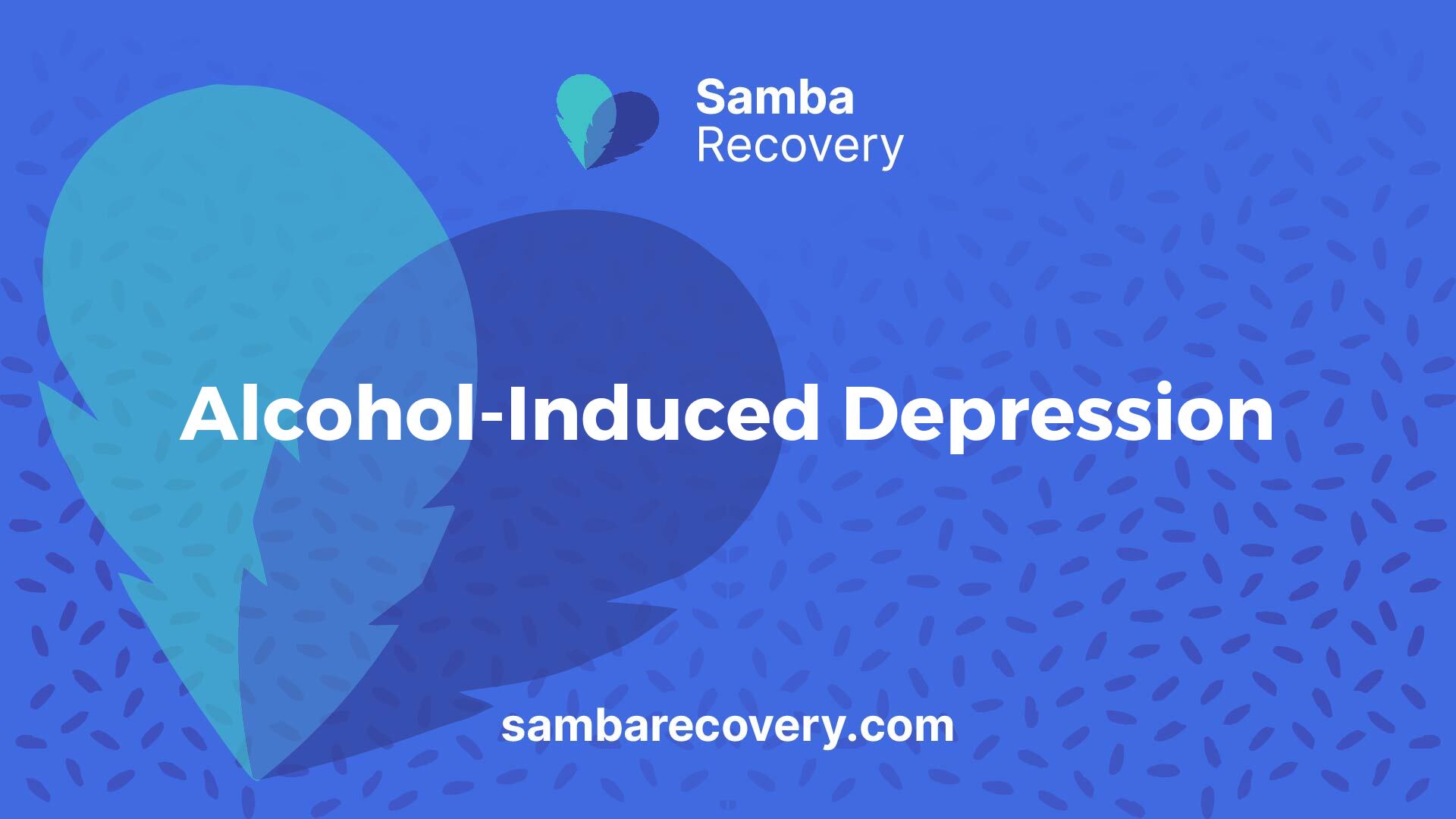
Alcohol-Induced Depression
Alcohol consumption has a complex relationship with depression. Understanding how alcohol impacts mood and depressive symptoms is crucial for those considering quitting or recovering from alcohol use.
Impact of Alcohol on Depression
Prolonged alcohol use can exacerbate depressive symptoms. Research shows that even moderate levels of consumption are linked to the worsening of depression, affecting the outcomes of pharmacological treatments. A study published in JAMA Psychiatry found a direct association between alcohol misuse and major depressive disorder, indicating that alcohol can lead to and worsen depressive symptoms, especially in individuals with a genetic predisposition to depression.
For some individuals, depressive symptoms caused by alcohol consumption may begin to decrease or stop altogether after alcohol cessation. However, there remains a risk that substance-induced depression could transition into independent depression if the symptoms persist following withdrawal [6].
Symptoms and Recovery
Individuals withdrawing from alcohol often experience post-acute withdrawal symptoms, which may include depression. These symptoms can persist for weeks or even up to two years. Symptoms may feature heightened anxiety, mood swings, and erratic sleeping and eating patterns [1].
Depressive symptoms can begin as early as six hours after the last drink, with potential peak symptoms occurring during the acute withdrawal phase. The phenomenon known as Post-Acute Withdrawal Syndrome (PAWS) can result in long-lasting depressive symptoms, sometimes lasting from weeks to years after quitting alcohol.
Recovery PhaseDurationSymptomsImmediate Withdrawal6 hours to 1 weekAnxiety, irritability, insomniaAcute Withdrawal1 week to 2 weeksMood swings, intense cravingsPost-Acute Withdrawal SyndromeWeeks to 2 yearsSustained depression, erratic moods
Understanding the effects of alcohol on mental wellness is essential for anyone navigating the recovery process. Supportive therapies and professional assistance are invaluable in managing these symptoms effectively. For more information on the relationship between alcohol and mental health, please visit our sections on what causes alcoholism? and the effects of alcohol are ruining my family.
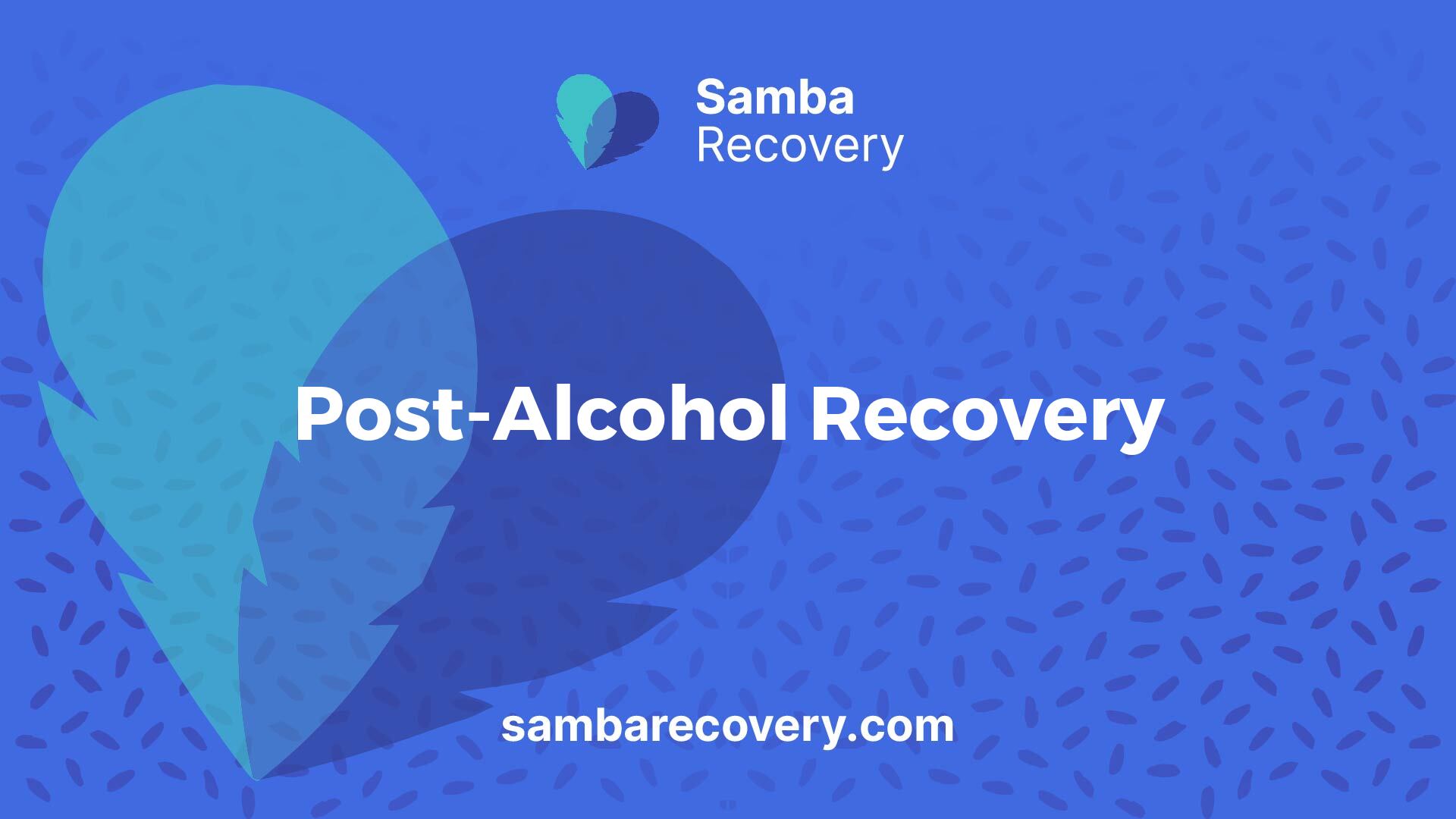
Post-Alcohol Recovery
Recovering from alcohol addiction often comes with challenges, particularly concerning mental health. This section outlines the timeline of recovery and the supportive therapies available to assist individuals after quitting alcohol.
Recovery Timeline
The length of time it takes to recover from depressive symptoms after quitting alcohol can vary significantly between individuals. Symptoms may begin as early as 6 hours after the last drink, peaking during the acute withdrawal period. For many, depressive symptoms might improve within a few weeks to months after stopping alcohol consumption; however, these symptoms can worsen and may peak around three to six months as the brain and body adjust to functioning without alcohol.
Time PeriodDescription0-6 HoursInitial onset of withdrawal symptoms, including potential depressive symptoms.1-2 WeeksEarly withdrawal symptoms subside; some experience improvements in mood and sleep.3-6 MonthsPeak of depressive symptoms may occur as the body adjusts; ongoing support is crucial.6 Months – 2 YearsPotential for Post-Acute Withdrawal Syndrome (PAWS) may lead to prolonged depressive symptoms.
Post-Acute Withdrawal Syndrome can cause depressive symptoms to last several weeks to up to two years after quitting alcohol. Many individuals observe improvements in sleep quality, energy levels, and mood after approximately three weeks of abstinence from alcohol [1].
Supportive Therapies
Support during recovery plays a crucial role in alleviating depressive symptoms. Various therapies can assist individuals in their journey towards mental wellness after quitting alcohol.
Understanding the timeline and seeking supportive therapies are crucial for individuals aiming to manage depressive symptoms effectively after quitting alcohol. For more resources and guidance on treatment options, explore articles on drug and alcohol treatment are not for me or 5 important facts you should know about an alcohol rehab center.
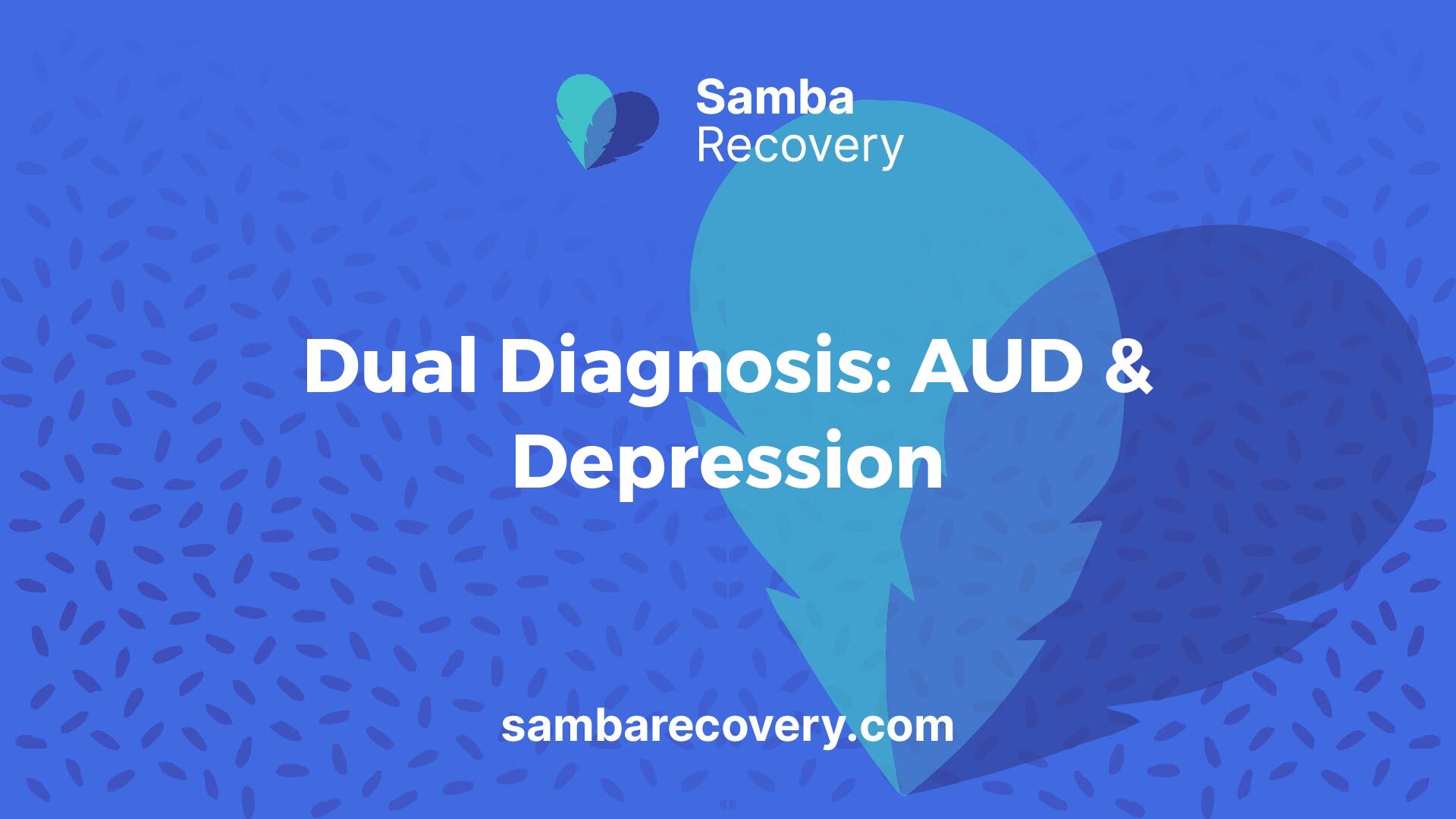
Dual Diagnosis: AUD & Depression
Understanding the relationship between alcohol use disorder (AUD) and depression is essential for effective treatment. Many individuals struggle with both conditions simultaneously, leading to increased complications during recovery.
Co-Occurrence Statistics
Statistical evidence highlights the frequent overlap between AUD and major depression. Nearly one-third of individuals with major depression also have alcohol use disorder, with the depression often occurring before the development of AUD.
The dual diagnosis significantly impacts treatment outcomes. Data suggests that the occurrence of either major depressive episodes (MDE) or AUD doubles the risk of developing the other disorder. Furthermore, co-existing MDE and AUD are linked with worse treatment outcomes, which include lower self-efficacy in AUD treatment and a quicker return to unhealthy drinking behaviors. Below is a table summarizing these statistics:
ConditionPercentage of Co-OccurrenceMajor Depression & Alcohol Use Disorder~33%Risk of Developing AUD if MDE Exists2xRisk of Developing MDE if AUD Exists2x
Integrated Treatment Approaches
Integrated treatment approaches are crucial for addressing the simultaneous occurrence of AUD and depression. These strategies provide tailored therapies that address both conditions concurrently, leading to more effective recovery outcomes.
Key components of integrated treatment might include:
Addressing both AUD and depression simultaneously rather than sequentially can lead to improved treatment outcomes. For further information on related topics, you may explore our articles on the effects of alcohol are ruining my family and signs of alcoholism you canât avoid.
References
[2]:
[3]:
[4]:
[5]:
[6]:
[7]:






